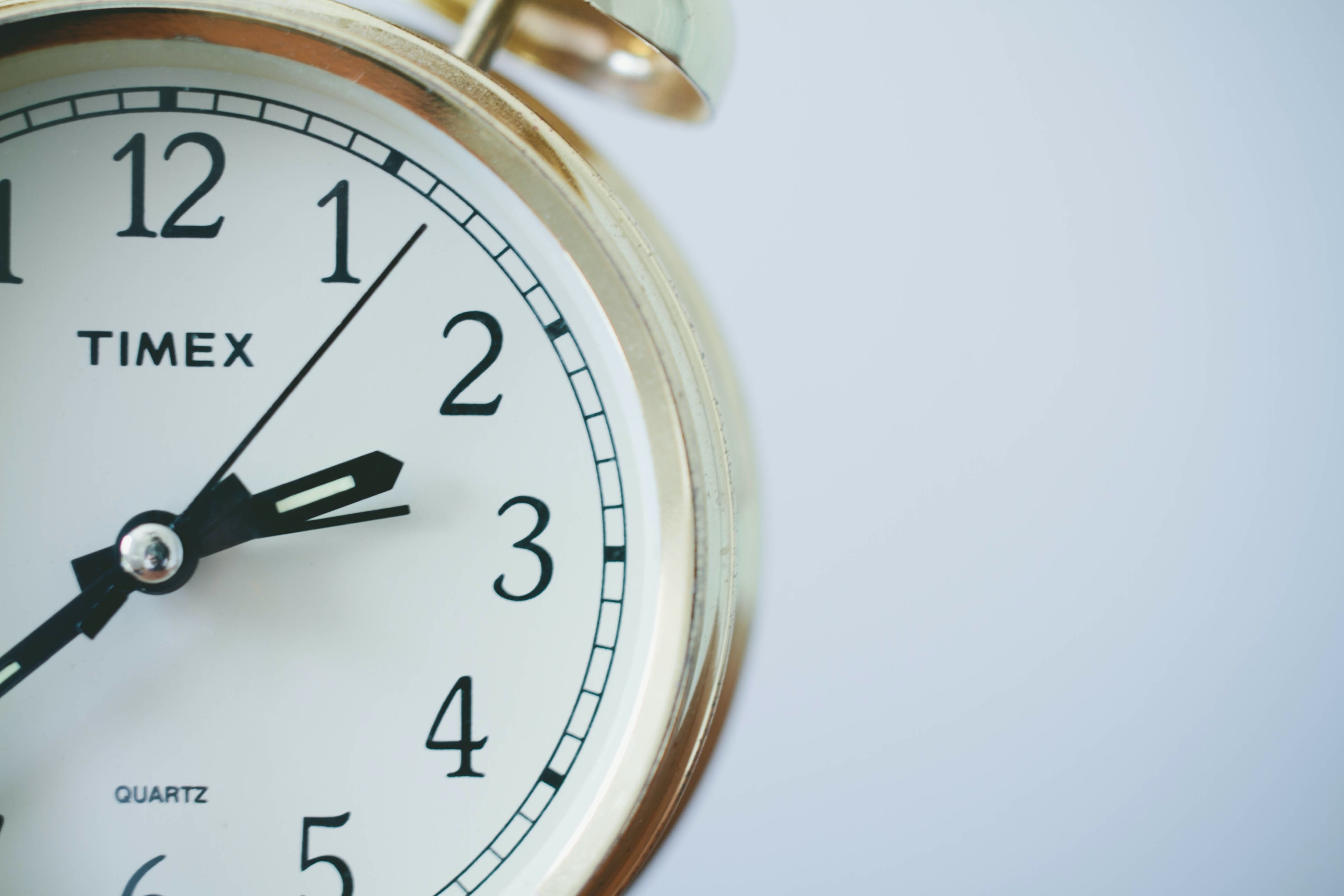The Alembic team were recently discussing the personal and societal impact of the pandemic. We had a lot to say on the subject so we have co-written a two-part series of articles to share the highlights of our conversation with you.
If you know the PESTEL model, then you will probably agree that the pandemic is a full house when it comes to the model.
PESTEL is a framework for assessing the macro environment of organisations and societies. PESTEL is an acronym, and stands for; political, environmental, social, technological, environmental, laws and regulation. All crucial factors to consider.
We have seen a shift on a global and unprecedented scale across all PESTEL factors however a big question I and the Alembic team wanted to explore was to do with the 'S' in PESTEL - the social impact of this global crisis.
.jpg?width=5000&name=edwin-hooper-Q8m8cLkryeo-unsplash%20(1).jpg)
Photo by Edwin Hooper on Unsplash
How are we as a human race responding to this and what is the impact on us now and for the future? How are our values and motivations shifting, how have we responded to our freedoms being limited, why are we experiencing time confusion, long days and short months etc?
These are all the questions we wanted to explore and we have each contributed to writing our thoughts on these subjects.
In this first part of the series, Matt, Nick and Sarah explore how our perceptions of time have shifted and why.
What is time?
by Sarah Mayhew, Director
‘Write an article on time’, they said. So, what is time?
For me, it is an expression of the before, the after, the now. Another way of putting this is, the stories/the memories, the imaginings or predictions and the attention/the movement and the action.
Our external measurement of time began with the recognition of the yearly orbit of the earth around the sun along with its daily rotation - an example of one of the cycles seen in nature.
Out of this developed the division of a day using candles, sundials, water clocks, hourglasses, bells, mechanical clocks and more recently atomic clocks. The accuracy of some of these ways of measuring time were subject to the effects of day and night, shifting temperatures and the weather.

Photo by Marian Kroell on Unsplash
Technology, using timepieces, our concepts of time and the development of the magnetic compass allowed us to learn to navigate our way more easily and helped us to organise our explorations of the world.
It has been said that there are more people who have lived on the planet that have not experienced our clock time, than those of us alive today who are experiencing it, even given the population explosion. However, we now seem to freely accept our way of marking time as more natural than the actual natural cycles around us – and then there is the theory of relativity that places us squarely within both time and space, which opens yet another direction of exploration over what time is.
Our bodies have natural rhythms, sometimes at odds with the timeliness of the clock. This brings us to some considerations about how we relate to time. Time offers us the opportunity to synchronise. It helps us to measure and quantify. It gives us freedoms by raising our consciousness about it, but also restricts us, by regulation. Time can be a motivator and a point of evaluation.
My personal experience of time during this Covid impacted year has been a recurring encounter. I have a sense of time spiralling around with similar outcomes. I have been here before. An illness by another name had me suspended, waiting, learning deep patience and tempering tolerance. However, there have been differences. Last time I was alone, this time it was a collective experience. Last time I was disoriented, this time I knew the terrain. Last time I felt outside of time with no choices. This time I was outside of time but with many choices. I learned to be in the flow of time while outside of time.
So how do you view time? How do you experience it? Does it elicit comfort or conflict in you? Here are some words and some idioms that you may associate with time and that you may recognise in yourself that can help to identify your relationship to time – scarce, expansive, opening up, closing in, time is pressing, time is on my side, obligations, time waits for no-one, quality, all in good time, schedules, time is money, plans, standards, in the moment, a stitch in time, drifting, achievement, borrowed time, linear, sequential, in next to no time, discipline, deadlines, downtime, goals, a race against time, disorganised, lazy, well-being, big picture, accounter of time, details, urgent, slow, buying time, patience, organised, dreamy, fast, nostalgic, spontaneous, infinite.
Do you run your clock by what you need or by what you want? Are you a clock watcher, a foot-tapper or is spontaneity your elusive muse? Do you time travel by predicting your future with the memories of your past?
Time, as we mark it, cannot be controlled, but we do get to manage our choices in relation to it.
So, to come back to the original question, the real answer is, I don’t know what time is, and yet, it is what I make of it.
“Time is a created thing. To say, ‘I don’t have time’, is like saying, ‘I don’t want to’. Lao Tzu
If you would like to explore your experiencing of time and how it is influencing your life, if you would like to make some small adjustments to see some big changes then please get in touch sarah.mayhew@alembicstrategy.com
How the Pandemic has shifted Time
by Matthew Dunaway, Strategy Facilitator
During the past 12 months, there have been a great many changes in the lives of people in the UK and around the world. Amongst these changes is a shift in the way that we see and experience time and choices.
It is only natural to experience changes in feelings and behaviour where there has been a fundamental disturbance to your everyday life, and this is something people often reported during the pandemic. It is the effect of environmental changes on our behaviour which I find particularly interesting and which I think is often overlooked in terms of impact.
Let’s start at the beginning, with the science, and look a little deeper at some of the mechanisms that contribute to this effect.
Our time is made up of a series of actions and interactions governed by both the conscious and unconscious areas of our brains. Much of this unconscious action can be described as routine or habit.
The brain's circuits for habitual and goal-directed action compete for control in the orbitofrontal cortex, a decision-making area of the brain, and day to day it is often habits that take control.
This is important as we need balance between habits and goal-directed actions to make our lives manageable. Can you imagine having to stop and actively consider whether you wanted to turn a light on and how you were going to do it every time you went into a room? Well, it’s our habits that let us skip the thinking phase and quickly and efficiently develop routines to perform the simple everyday tasks for us with little cognitive effort.
Behind our habits and routines, there are many unconscious signposts that inform our decision making, called triggers.
Triggers help us to seamlessly interpret our daily environment and build up helpful routines to make our lives a little easier.
A great example of basic triggers, which your body interprets all by itself, are sensory triggers. Think about what happens when your favourite food is in the oven and you catch the scent on the air. If you are anything like me, then your mouth is watering just from the thought of it. Well, this is a classic example of sensory trigger and is your body preparing you for a meal be initiating your salivary response and producing digestive enzymes.
Other triggers, a little more removed from our primal physiological responses, work in much the same way and are present in our environment everywhere you look.

Photo by Danielle MacInnes on Unsplash
For me, going to work is the perfect example of an environment packed full of triggers all pointing you towards a mind-state of being ready to get to work.
- Rising early
- Getting a shower
- Dressing in your work clothes
- Putting on a tie
- Lacing up your shoes
- The taste/smell of coffee
- Walking through the city
- Sitting on a train
- Commuting with others sharing your purpose
- Listening to music/podcast
- Seeing you colleagues
- Your office/computer/desk/chair
Think about how many of those triggers were present in your day to day routine. Now consider how many were lost during the pandemic and how that might have impacted your ability to follow a similar routine devoid of the triggers prompting your behaviour in the background.
It really is no wonder that so many people have struggled over the past year. Fundamentally, much of the difficulty comes as habitual behaviour has been broken down by the removal of underlying triggers. This means that we have moved from the efficient and easy habitual paths we have developed over many years to goal-directed behaviour, which takes far more active thought and effort.
Although it might be starting to sound all doom and gloom, the situation I have been describing is certainly not all negative. Consider that maybe not all of your habits and routines were positive ones . . . and that you are probably now in a position where you have recreated many of the routines that you need to help you in life. This leaves us in the excellent position of being able to reflect on what is missing from our past and how can we integrate it into what we are doing well now. It is also worth considering whether the loss of some of your former routines creates space in your life to reorientate or try something new?
If you are interested in building or rebuilding habits, then the 4 laws of behavioural change are worth a look. I will leave you with a link to an excellent author on habits - James Clear, who has a number of easy to read articles on his website.
I hope understanding some of the mechanisms behind the changes and difficulties of 2020 has been interesting and will help you build a better routine for 2021.
Time Hacks to Unlock Your Time Distortion
by Nick Mayhew, Managing Director
Has time disappeared? Wondering where the day, week, month or even year has gone?
You are not alone! Our brains are built for efficiency, they are pretty energy hungry. The 6 Watts they use are around 20% of our daily energy needs. Not much, but at the same time, more than a head-sized amount.
By way of an energy-saving adaptive trick, the brain ignores what it has already seen. It goes further. It projects what it expects and often ignores new information. Ever been surprised to find yourself in the wrong? This may be why.
Lockdown is a disaster for our time perception as the brain quickly enters ultra low power mode and unconsciously ignores all data. Consequence? Time distortion! Time can seem to disappear, interspaced with the occasional shock that another week has gone. Lockdown is a thief of time.

Photo by Sonja Langford on Unsplash
So what can you do to get your time back?
Here are five simple tips to slow time down and get more done
The brain notices change, so:
- Ruthlessly structure your day into different chunks
- Choose to experience each one in a novel way: move room, stand up, go for your exercise
- Destroy routines. Done anything repeatedly? Break that routine and pick something entirely different
Final thoughts
It was the Buddha who taught that the source of human suffering and discontent is that we crave and cling to the things of this world under the mistaken view that they will last forever. But nothing does. All articles pick up on the theme of impermanence that the pandemic has highlighted, whether that be changing routines, the feeling of lost time, or the way we make choices.
This collection of articles is designed to help you understand the impact of the pandemic on your routines, values and choices, and how reflecting on this creates a greater understanding of yourself and seek opportunity and positive change during this historical moment in our global society. Perhaps there is some solace in the concept of impermanence which brings the courage to reflect and find joy in starting again.
If you have reflective thoughts that you want to share with the Alembic Team then we would love to hear from you.




